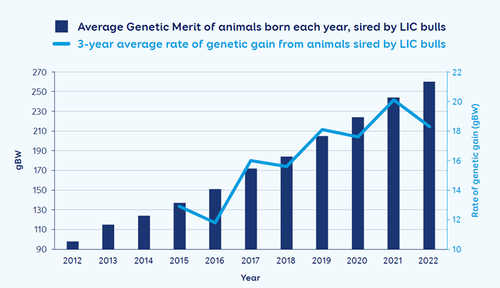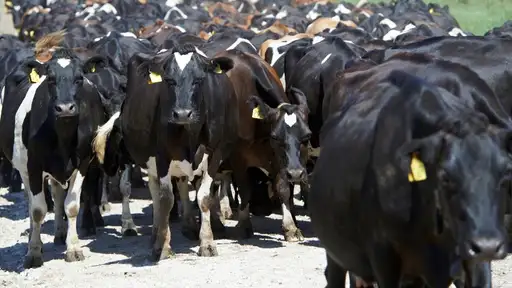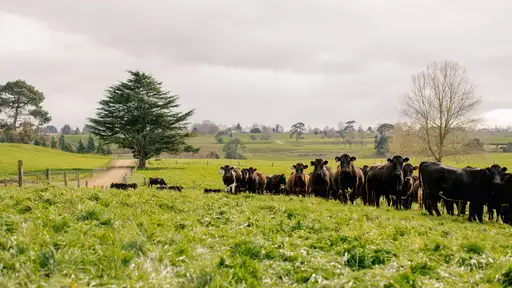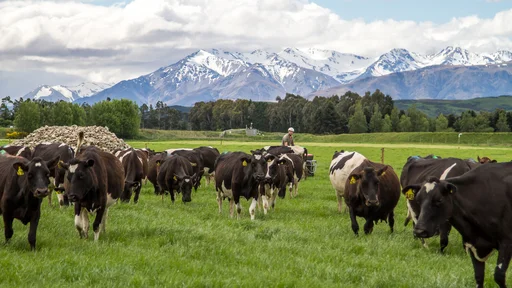Today LIC made a submission opposing DairyNZ’s proposal for a new animal evaluation model to incorporate genomics (NZAEL3.5) titled, “A better BW for the New Zealand dairy sector”.
As indicated in our letter to you on 16 May, LIC has serious concerns with the proposal. Our submission outlines the reasons why we believe the proposal as it stands would be detrimental to LIC’s farmers and the wider sector.
We have not made this decision to oppose the proposal lightly. We have worked closely with DairyNZ over a long period of time during their development of their proposal, but we were unfortunately unable to agree to a proposal that we believe would improve on the status quo, avoid creating uncertainty in the sector and provide a fair outcome for the co-operative and New Zealand’s dairy farmers.
I encourage you to read our full submission here, and to consider making your own submission on the DairyNZ Proposal.
There is no problem to solve here for LIC farmers.
While we welcome increased competition and any changes to the current animal evaluation model in New Zealand that will strengthen the wider industry, the DairyNZ Proposal does not achieve these outcomes.
We understand some farmers might want a simpler animal evaluation system with a single index and we will continue to work with DairyNZ to find a solution for that – but their proposal is not the way forward.
We strongly believe that the co-operative is in a strong position to deliver for you under the current model, and we will continue to put our heads down to focus on our core mission to support herd improvement in New Zealand.
As of today:
- Your herd improvement co-operative, representing 9,000+ dairy farmers, has invested heavily in genomics on your behalf.
- This is delivering significant value to 9,000+ LIC farmers.
- Genomic bulls are widely available for AB and the majority of our 9,000+ farmers are utilising them.
Here are the key points that we have made to DairyNZ, outlining our concerns and rationale for opposing their proposal:
1. It is not clear who the Proposal really benefits.
While the Proposal aims to facilitate more competition in the AB market, we note that competition in the AB market exists today in New Zealand, with opportunities already available for new players to enter the market. This is to the benefit of New Zealand farmers, and the existing competition helps to drive investment in R&D. The Proposal would risk disincentivising investment in R&D without clear benefits for increasing the choice of AB providers for farmers.
2. It will increase costs to farmers and the industry.
While the Proposal is intended to make genomics more widely available for New Zealand farmers, the majority of farmers in New Zealand have ample access through LIC and are receiving value on farm. DairyNZ is proposing to use farmer-levy money to re-create a genotype database which already exists.
The Proposal also contains an unclear and confusing fee model, with a lack of clarity on how exactly the model would be funded. For example, there is reference to straw levies and levies for cow enrolment via herd record providers as optional charges depending on what other fees are included. Although it is unclear how DairyNZ intends to enforce collection of these levies, ultimately all costs are borne by the industry one way or another.
3. It is unclear how it would operate without the participation of LIC and other existing AB companies.
The Proposal requires all parties to be involved, including LIC. However, the current model does not encourage participation by current industry participants. The Proposal fails to address how the model would operate and how it would be funded should existing companies, including LIC, choose not to participate.
4. The ‘size of the prize’ is based off flawed assumptions and is not accurate.
It is not clear what the problem is that DairyNZ is trying to solve. The Proposal claims that there is an opportunity of $1.36 Billion return on farm over the next 10 years by increasing BW year on year through genomics. There is no independent modelling or evidence to support this opportunity. In fact, the modelling associated with the Proposal is retrospective and only looks at data up to 2020.
5. Year on year, LIC farmers are already achieving above and beyond the rates of genetic gain the Proposal aims to achieve.
LIC is already achieving rates of genetic gain above the rates the Proposal aims to deliver, and contests the claim that the rate of genetic gain in New Zealand is as poor as the Proposal presents. Long-term users of LIC genetics have almost doubled the rate of genetic gain in their herds over the last 10 years – now at 18gBW per annum. This surpasses the industry average of 10BW, as stated by DairyNZ.

6. There are no real issues with the current model, which provides competition, choice for farmers and incentivises investment in R&D.
We contend that the current model is fit for purpose, and any change would need to be modelled off very clearly defined costs and benefits to all players in the sector. Today there is competition in the market and choice for farmers, and this incentivises investment in R&D. The Proposal will put all of these at risk.
The Proposal implies that there is a real issue with the current system of multiple indices. They have not effectively proven that this system does not work and that New Zealand’s farmers are incapable of understanding more than one index.
7. It will lead to a critical reduction in R&D and innovation across the industry.
One of LIC’s biggest concerns with the Proposal is the negative impact on innovation and investment in research and development. The Proposal throws doubt on the ability of participants to deliver superior R&D. Instead of investing in key research, companies will be forced to pay fees for the BW system. This does not benefit the industry or farmers.
8. It is uncertain whether DairyNZ has the technical and financial ability to deliver the complex technology project alongside its other priorities on behalf of its levy payers.
We are concerned that the model as proposed is not viable long term. The model in the Proposal has a short-term focus and limited funding capability. As highlighted in the Proposal’s accompanying documentation, there is a lack of clarity on the appropriate fees to charge and there is an entire section highlighting that the financial viability of the model is weak and could change.
Furthermore, we are concerned that this will place an additional burden on DairyNZ, which has a number of industry interests and issues to manage already on behalf of levy payers. We are concerned that without a viable long-term model for managing a genomic index, the Proposal will not be able to be sustained by DairyNZ without placing further burden on levy payers.
9. It is focused on phenotypic data over and beyond genotypic data.
The Proposal appears to have a large focus on data quality, particularly quality phenotypic data. LIC supports the need for quality data and is actively participating in the industry initiative (Industry Data standards review) to encourage better herd recording and more accurate capturing of data. This work is currently being undertaken and is independent of the outcome of this review.
We will continue to focus on creating value for our farmer shareholders.
Our focus will continue to be on driving value, innovating, and delivering a positive impact for our customers and shareholders regardless of the outcome of this DairyNZ proposal.
We thank you for your ongoing support.
Regards,

*This was emailed to LIC shareholders on Tuesday, 20 June 2023.




